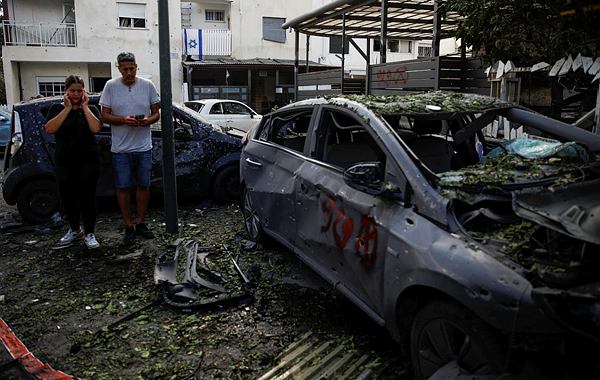Intense exchanges of fire between Israel and Hezbollah continued into Sunday, marking one of the most significant escalations in nearly a year. Israeli warplanes launched a series of strikes across southern Lebanon, while Hezbollah responded by firing rockets deep into northern Israel.
The Israeli military reported hitting around 290 Hezbollah targets on Saturday, which included multiple rocket launchers. Israel also implemented school closures and restricted public gatherings in northern areas and the Golan Heights due to the ongoing hostilities.
Overnight, sirens blared as rockets were launched from Lebanon and Iraq, most of which were intercepted by Israeli defence systems. A few buildings were damaged, including a residence near Haifa, but no fatalities were reported as residents remained in bomb shelters.
Hezbollah claimed responsibility for a missile strike on Israel’s Ramat David Airbase, in response to what they described as repeated Israeli attacks on Lebanese territory. This marked the group’s deepest strike since hostilities intensified following Hezbollah’s opening of a second front in the wake of Israel’s war with Hamas in Gaza.
Iran-backed Iraqi militants also claimed to have launched an explosive drone attack on Israel.
The conflict, which sharply escalated in recent days, stems from Hezbollah’s involvement after Hamas attacked southern Israel on Oct. 7. Since then, Israel has been locked in an ongoing war with Hamas in Gaza, which has drawn Hezbollah and other groups into the fighting.
Rising Death Toll After Israeli Airstrikes
Tensions increased on Friday when an Israeli airstrike targeted Hezbollah commanders in Beirut, killing 16 members of the group, including senior figures such as Ibrahim Aqil and Ahmed Wahbi. This was the deadliest strike since the conflict erupted. Israel claims it successfully dismantled a significant portion of Hezbollah’s military command.
In response to the attacks, Hezbollah launched multiple rocket barrages at Israeli military installations. Israeli forces retaliated with further strikes on Hezbollah positions in Lebanon.
International Reactions and Escalating Violence
As the fighting continues, the U.N. Special Coordinator for Lebanon, Jeanine Hennis-Plasschaert, warned that the region is on the brink of catastrophe, emphasizing that a military solution would not make either side safer.
Meanwhile, Israel has raised alert levels and restricted gatherings in northern regions, signaling concerns that Hezbollah could launch even deeper strikes into Israeli territory.
The ongoing conflict has already displaced tens of thousands on both sides of the Israel-Lebanon border. Israeli Defense Minister Yoav Gallant vowed that Israel’s military actions would continue until the northern residents could safely return to their homes.
Amid fears of broader regional escalation, a communique from a U.S.-led summit, involving leaders from Japan, India, and Australia, called for preventing the Gaza conflict from spreading, though it did not specifically mention the Israel-Hezbollah fighting.
In Lebanon, over 70 people have been killed in the past week, raising the conflict’s death toll in the country to more than 740 since October. This represents the worst flare-up between Israel and Hezbollah since their 2006 war.


